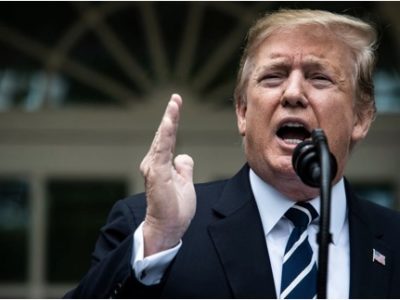Schedule F and the Future of the Regulatory State
Legal Planet: Environmental Law and Policy 2024-07-30

Trump has vowed to destroy the “deep state” and to wreak vengeance on his enemies. Something called “Schedule F” is one of the key tools he plans to use as soon as he takes office to “remove rogue bureaucrats,” and he promises to use that tool “very aggressively.” Trump’s plan would replace thousands of government experts with MAGA ideologues and partisan hacks.
Despite its sweeping consequences, Trump’s plan relies on an obscure technicality. Schedule F is based on a section of the 1978 Civil Service Reform Act — itself an obscure statute. 7511(b)(2) exempts certain federal employees from civil service protection. An employee is exempt if their position is of “confidential, policymaking, or policy-advocating character.” (5 USC § 7511(b(2)). Past presidents defined this category narrowly to cover only the high-level positions that turn over during presidential transitions.
As President, Trump issued an executive order creating Schedule F, which transformed this narrow exemption into a open-ended threat to the independence of senior government officials. The order contained a list of factors that would require listing a position in Schedule F:
- Participating in the development or drafting of regulations and guidance.
- Supervising attorneys in connection with policy decisions.
- Exercising substantial discretion over an agency’s activities.
- Working on non-public policy proposals or deliberations as a senior official.
As many as 50,000 civil service employees would have lost their job protections, and many of those positions would have been up for political appointment. According to experts, this would have stuffed the bureaucracy with people having more extreme ideologies, created inefficiencies because of inexperience with federal agency management, and made agencies less responsive to Congress and the public.
The Biden Administration eliminated Schedule F and adopted a regulation that will make such a schedule more difficult to adopt or implement in the future. In particular, the regulation reinstates the previous understanding that Congress intended section 7411(b)(2) to apply only to non-career political appointees hired for a single presidential administration.
There’s a good argument that Schedule F is illegal. Schedule F like the kind of rule that the Supreme Court has struck down under the major question doctrine. It involves :
- An obscure statutory provision,
- Unprecedented use of the provision,
- A radical departure from past practice, and
- Political controversy and a significant economic impact (potentially layoffs for 50,000 workers).
It seems unlikely that Congress would have wanted to delegate a decision of such consequence to the executive branch, especially since the whole purpose of the Civil Service Act is to limit politicization of the bureaucracy. As Justice Scalia once said, Congress does not hide elephants in mouseholes — and § 7511(b)(2) is as much a mousehole as you could find in the U.S. Code.
Politicizing the bureaucracy means exchanging competence and expertise for partisan politics and ideology. It would immediately damage the ability of agencies like EPA to function. Worse, once so many experts and senior officials are lost, it would be impossible to replace the lost experience and expertise. A future president would have a hard time restoring the level of competence and dedication to their missions. Thus, Schedule F would be a permanent wound to effective democratic government.